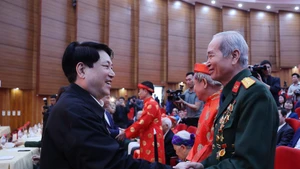More than 140 years ago, F. Engels, a genius thinker and comrade of C. Marx, deeply pondered the same problem for Tsarist Russia: Can a pre-capitalist society, still containing many remnants of rural communes, cross capitalism to advance straight to a higher social form? That is the idea of a “shortened” development path — a valuable theoretical legacy that still illuminates Viet Nam’s development path today.
According to F. Engels, the objective conditions for the possibility of “shortened” development are to inherit and master the achievements of human civilisation, especially achievements in science, technology, and productive forces.
Viet Nam must combine the nation’s internal strength with the full utilisation of external resources and favourable conditions and must always start from objective reality, correctly analyse the specific historical context to determine the appropriate path, avoid dogmatism, and subjective voluntarism.
Standing on the solid theoretical foundation of Marx-Lenin, especially the thought of F. Engels on “shortened” development, the Communist Party of Viet Nam has led the nation to overcome countless challenges on the path to building socialism.
Regarding external conditions, if F. Engels emphasised the necessity of “proletarian revolution in the West”, today Viet Nam proactively creates favourable conditions through an independent, autonomous, peaceful, friendly, cooperative and developmental foreign policy.
The proactive, active approach to quickly and effectively utilise the opportunities and achievements of the fourth industrial revolution, combining national strength with the strength of the times is a creative application of the spirit of F. Engels, which proactively interacts with and selectively absorbs the development achievements of humanity, especially technology and capital, from developed capitalist countries and strategic partners.
At the same time, Viet Nam always adheres to the principle of “strategic autonomy, self-reliance, self-confidence”, ensuring the absorption of external technology and capital to serve the goal of advancing to socialism.
Regarding the material and technical basis, if Engels emphasised that Russia must absorb the large-scale industry of the West, the Party clearly identified in the Draft Political Report submitted to the 14th Congress: “Establishing a new growth model with the goal of improving productivity, quality, efficiency, added value and competitiveness of the economy; taking science, technology, innovation and digital transformation as the main driving force...”.
Viet Nam does not “short-cut” by skipping industrialisation and modernisation, but by implementing industrialisation and modernisation in a new way, going straight to advanced technologies.
The country has prioritised the development of emerging industries such as semiconductor chips, robotics and automation, artificial intelligence, advanced materials, including atomic energy application industries and aerospace industries. This is the way to “create new high-quality productive forces and production methods”, meeting Engels’ requirement to grasp “modern productive forces”.
Regarding the leadership subject, if F. Engels pointed out the limitation of the Russian commune as the lack of a strong enough social subject, then Viet Nam has a significant advantage: the leadership of the Communist Party of Viet Nam — a Party that has been tempered through revolutionary struggles and nation building.
The Party plays the role of a political nucleus to create development thinking, guide institutions, shape strategies, promote social consensus, and arouse the nation’s aspirations to rise up.
The completion of the apparatus, the arrangement of the political system’s organisation in the direction of being lean, compact, strong, efficient, effective, and efficient is the preparation of the subject to lead the “shortened” development process.
Regarding the human factor, this is the point where Viet Nam goes far beyond the context that F. Engels once analysed. If F. Engels pointed out the limitations of farmers in the commune period, then today Viet Nam identifies human development as the centre of its development strategy.
One of the three strategic breakthroughs clearly stated in the draft documents submitted to the 14th Congress is: “Focus on restructuring and improving the quality of human resources, developing high-quality, highly qualified human resources; promoting the attraction and use of talents...”.
Because all advanced technologies and abundant capital from outside will become meaningless without qualified people to receive, master and create. Building a modern education system, training citizens with enough qualities and capacity to master science and technology is the most important internal preparation. This is the dialectical development of F. Engels's thought in the new era, not only inheriting “machines”, but also training “workers” and “engineers” who can operate and improve those machines.
More importantly, Viet Nam affirms that “People are the root”, “People are the subject, the centre”, strongly arousing “the aspiration for development, the spirit of solidarity, the will to be self-reliant, self-confident, and national pride”. This combined strength is the most important endogenous factor to overcome all difficulties and challenges.
Although the historical context has changed, the core principles in F. Engels’s thought on “shortened” development still hold true.
First, the principle of the decisive role of productive forces. It is impossible to build socialism on the foundation of backwardness. Economic, scientific and technological development is the central task.
This requires Viet Nam to continue to consider science, technology, and innovation as breakthrough factors, focusing on developing “new productive forces” such as digital economy and green economy to improve growth quality and overcome the risk of technological lag.
Second, the principle of dialectical thinking and creative innovation. We must inherit and absorb all achievements of human civilisation, including those created within capitalism.
F. Engels affirmed that the commune can grasp the great productive forces of capitalist society as social assets and social tools. This is a universal law, applicable not only to Russia, but also to all countries in the process of building socialism.
Third, the principle of combining internal and external forces. The “overcoming” is conditional, requiring the convergence of both internal and external factors. Viet Nam does this by combining national strength with the strength of the times, both firmly maintaining strategic autonomy and proactively integrating deeply into the international community.
Fourth, the principle of starting from objective reality. Viet Nam must correctly analyse the specific historical context, avoiding dogmatism and subjective voluntarism.
Engels never considered history as a single path. Similarly, Viet Nam is “steadfast in strategy, flexible and adaptable in tactics”, demonstrating the dialectical unity between universal laws and specificity.
Engels’s thought on “shortened” development is not a mechanical formula to apply, but a dialectical methodology for analysis and action, which shows that “shortened” development is a conditional possibility, not an inevitable law or a privilege reserved for any nation; it requires the convergence of both internal and external factors that are extremely specific, and at the same time requires a strong enough political entity to lead.
More than a century after Engels’s writings on Russia, Viet Nam is facing a historical opportunity to implement its “shortened” development path. With a solid theoretical foundation, correct guidelines and wise leadership of the Party, and with the aspirations of the entire nation, we have every reason to believe that Viet Nam will successfully achieve the historic goal of turning the country into a developed, high-income country by 2045.
The “shortened” development path is not a path filled with roses. It is a path full of thorns and challenges, requiring an iron will, a strategic vision and constant creativity.
But it is also the only path for a backward nation to shorten the gap with advanced countries, avoid unnecessary twists and turns, and move straight to a better society.

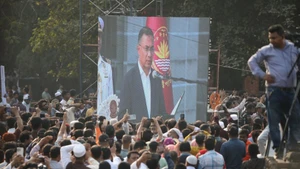
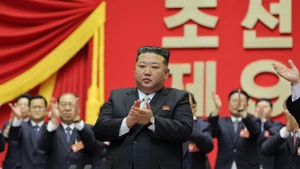
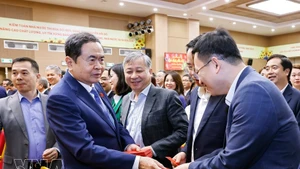
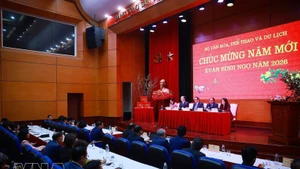

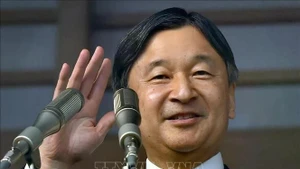

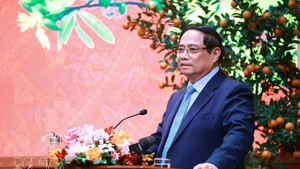
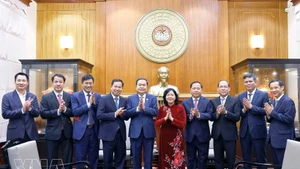
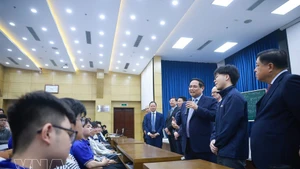

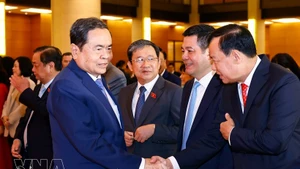
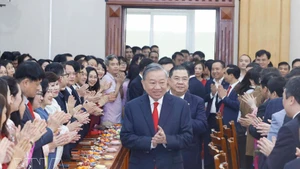
![[In Photos] State President attends launch ceremony of tree planting festival in Lao Cai Province](https://en-cdn.nhandan.vn/images/5992a12dd6e78b9bfb434962ff1830731c3ef6c1538d722fbb2593b0fa31ecfef49228c53032d69e7064fd34994bdd2c/1.jpg.webp)
